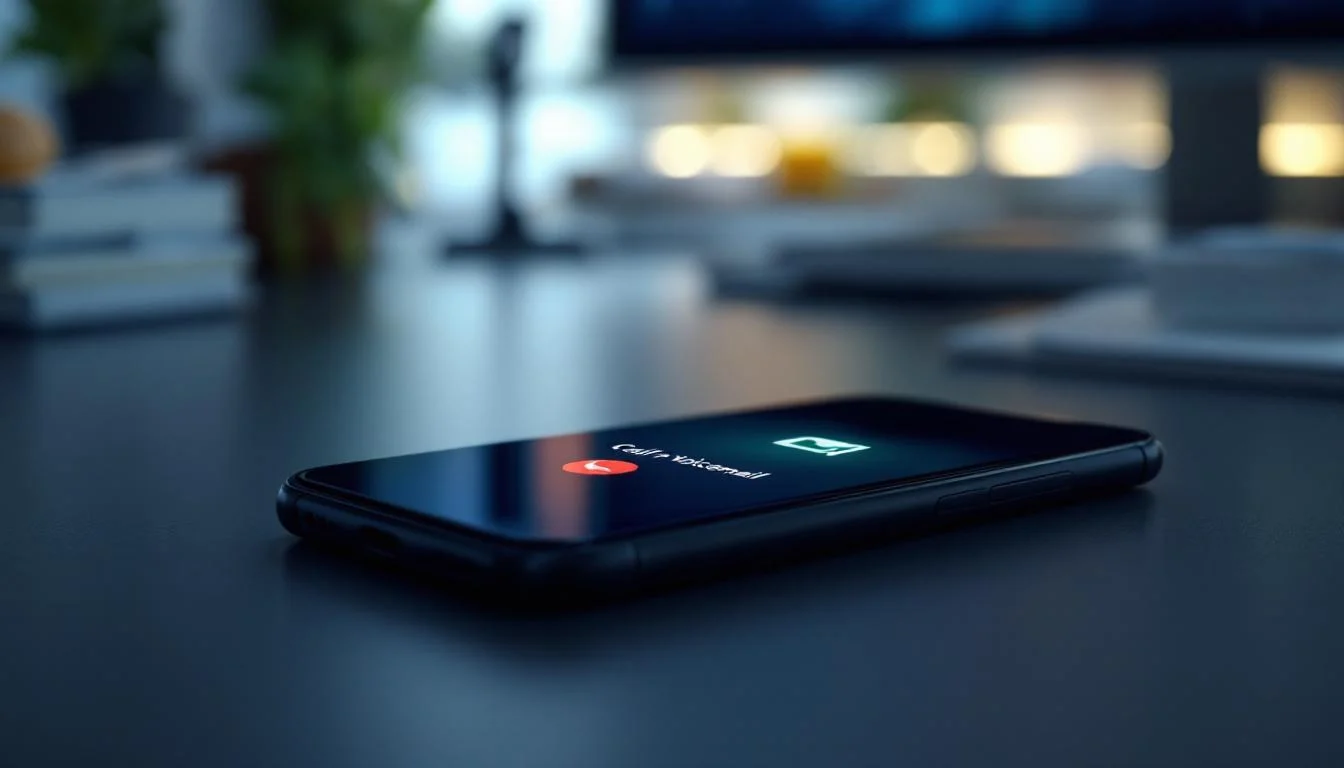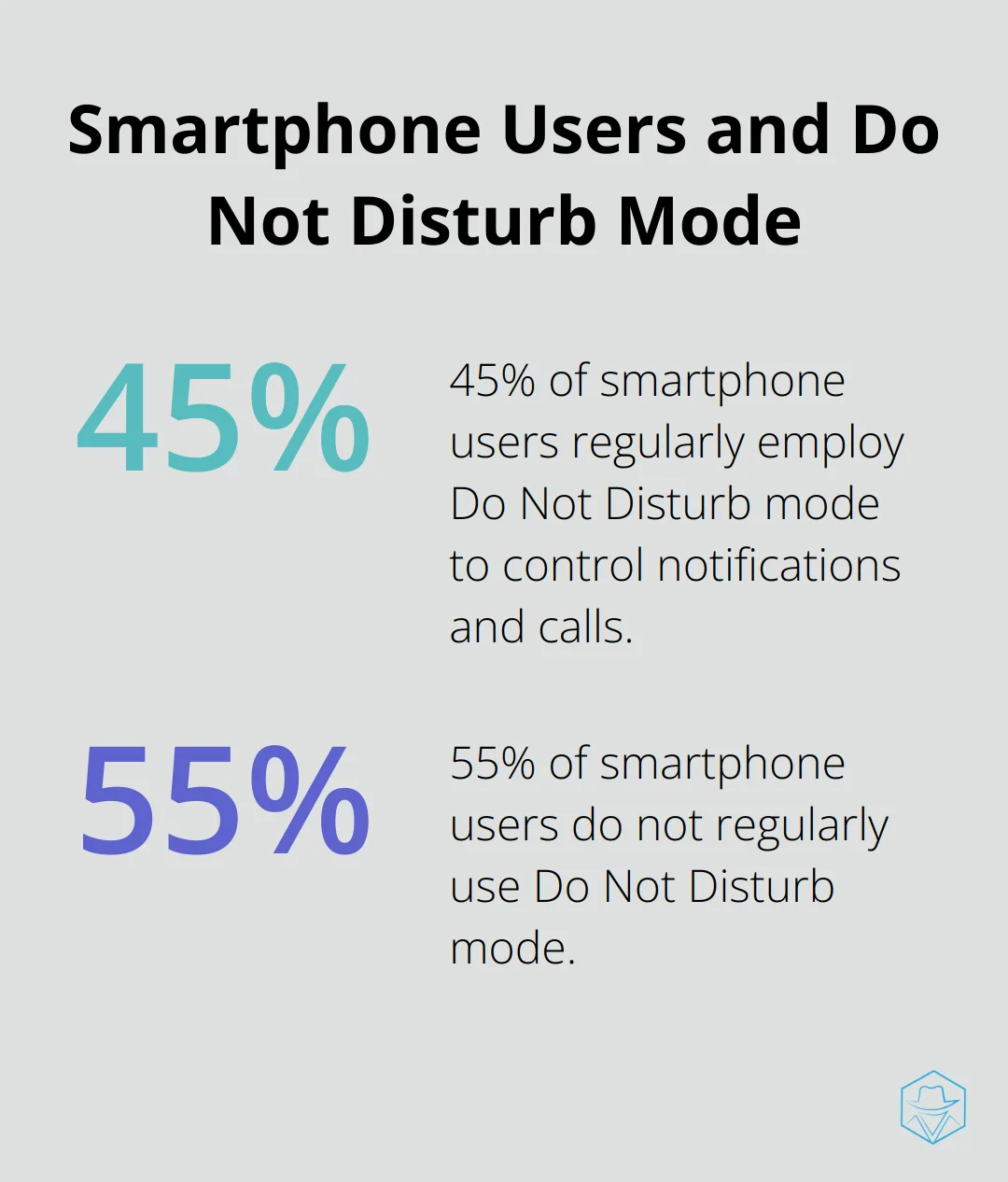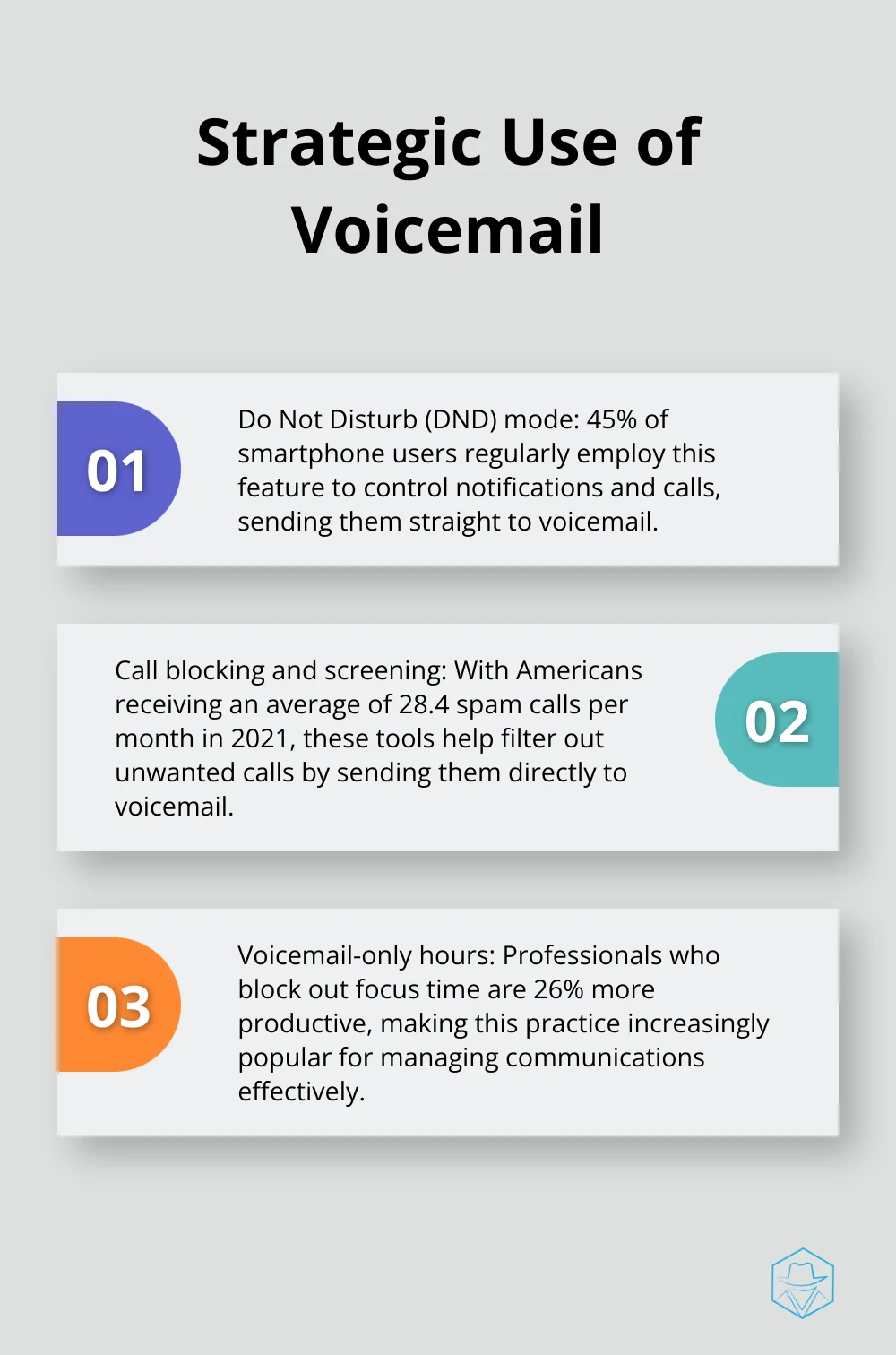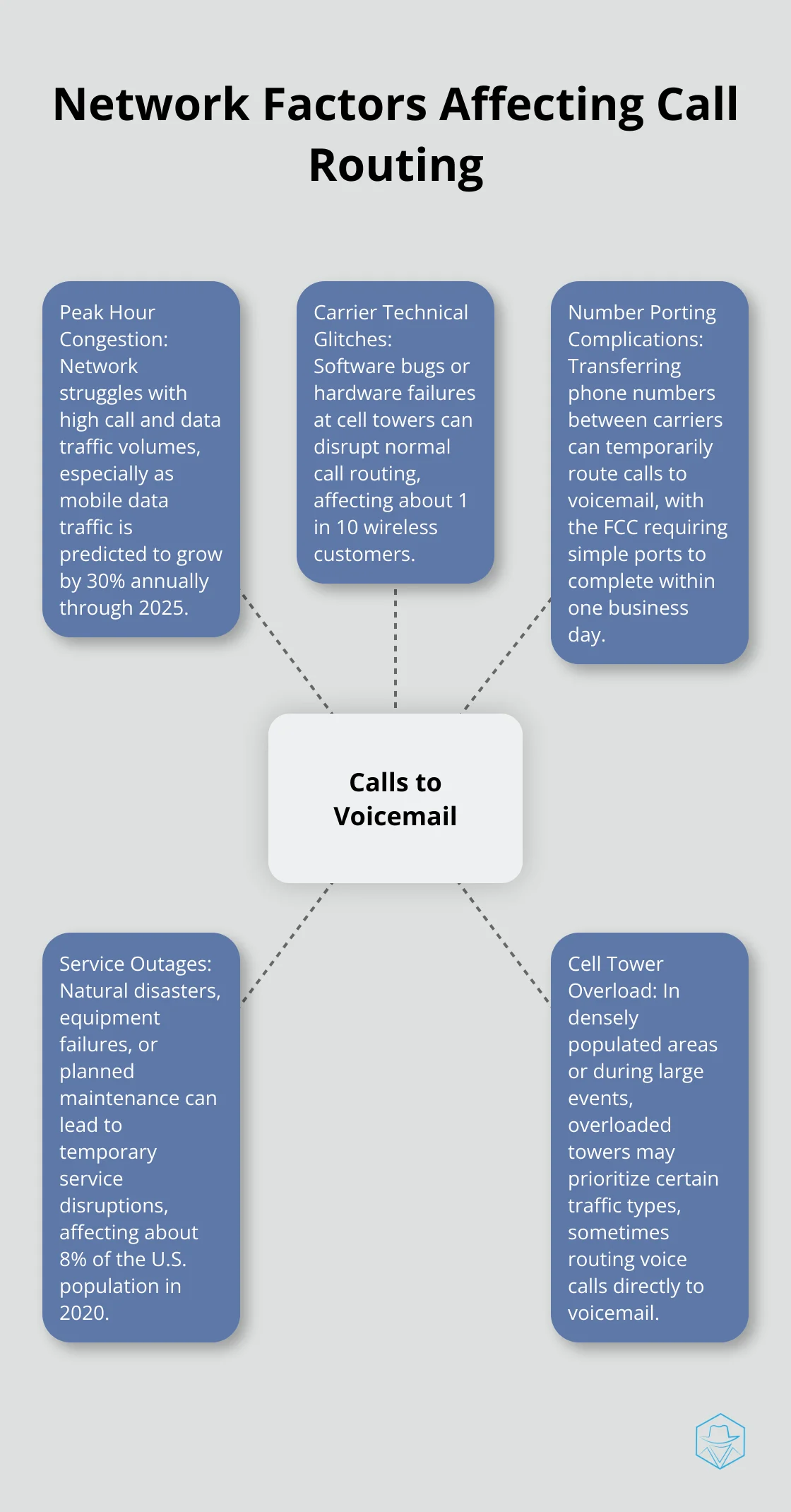Why does a call go straight to voicemail

At Drop Cowboy, we often hear from users wondering why their calls go straight to voicemail. It’s a common issue that can be frustrating for both callers and recipients.
Understanding the reasons behind this phenomenon is key to improving communication and leveraging voicemail technology effectively. In this post, we’ll explore the technical, intentional, and external factors that can cause calls to bypass ringing and land directly in voicemail.
Why Do Calls Go Straight to Voicemail?
Device Power and Connectivity Issues
One of the most common reasons for calls to bypass ringing and land directly in voicemail is the recipient’s phone being turned off or in airplane mode. This occurs when a device runs out of battery or when the user manually powers it down. In these situations, the network identifies the device as unreachable and automatically routes calls to voicemail.
Network Coverage Challenges
Poor network coverage or weak signal strength can also cause calls to be directed straight to voicemail. In areas with limited cellular reception (such as rural locations or inside buildings with thick walls), the phone may fail to maintain a consistent connection. As a result, incoming calls may not reach the device and instead route to voicemail.
Software Glitches and Updates
Sometimes, the issue lies within the phone’s software. Glitches or bugs in the operating system can interfere with normal call processing. This is particularly common after major software updates, which can introduce unexpected issues. Users often report calls going straight to voicemail immediately following an OS update.
Troubleshooting Steps
To address these technical issues, we recommend the following troubleshooting steps:
- Check that your device is powered on and has sufficient battery life.
- Verify your network signal strength and move to an area with better coverage if necessary.
- Restart your device to clear any temporary software glitches.
- Contact your device manufacturer or carrier for support if problems persist after a software update.
The Role of Voicemail Technology
While these issues can be frustrating, they highlight the importance of robust voicemail systems. Platforms like Drop Cowboy offer advanced voicemail solutions that ensure important messages are never missed, even when technical difficulties arise. Our ringless voicemail feature, for instance, allows businesses to deliver messages directly to voicemail boxes without the need for a call to connect, bypassing many of these common issues.
As we move forward, it’s important to consider not just why calls go to voicemail, but also how we can use voicemail technology to our advantage. In the next section, we’ll explore intentional call routing to voicemail and how it can be a powerful tool for managing communications.
Why People Intentionally Route Calls to Voicemail
Many individuals and businesses purposefully direct certain calls straight to voicemail. This practice has gained popularity as people seek to manage their time and control their communication channels more effectively.
The Power of Do Not Disturb Mode
Do Not Disturb (DND) mode stands out as a popular feature for managing incoming calls. This setting silences all incoming calls, notifications, and alerts. When active, calls typically bypass the ring and go straight to voicemail. A Pew Research Center survey revealed that 45% of smartphone users regularly employ DND mode to control their notifications and calls.

Call Blocking and Screening Tactics
Many people utilize call blocking or screening features to filter out unwanted calls. These tools can send specific numbers or types of calls (such as those from unknown numbers) directly to voicemail. A Truecaller study found that Americans received an average of 28.4 spam calls per month in 2021, underscoring the need for effective call screening.
Strategic Use of Call Forwarding
Automatic call forwarding offers another method to intentionally route calls to voicemail. This feature allows users to redirect calls to another number or straight to voicemail based on specific conditions. For example, a business owner might set up call forwarding to send all after-hours calls directly to a professional voicemail greeting.
Implementing Voicemail-Only Hours
Some professionals and businesses designate specific hours during which all calls go straight to voicemail. This practice proves particularly common among those who need uninterrupted focus time or work across different time zones. A RescueTime study showed that professionals who block out focus time are 26% more productive than those who don’t.

The strategic use of voicemail has become a trend among businesses. Many leverage ringless voicemail features to deliver important messages directly to customers’ voicemail boxes, respecting their time and preferences while maintaining communication.
These intentional routing practices play a significant role in today’s fast-paced communication landscape. However, external factors beyond user control can also influence call routing. In the next section, we’ll explore how network conditions and carrier-related issues can cause calls to go straight to voicemail.
Network Factors That Affect Call Routing
Peak Hour Congestion
Network congestion during high-traffic periods often causes calls to route directly to voicemail. This happens when the network struggles with the volume of calls and data traffic. Ericsson predicts mobile data traffic will grow by about 30% annually through 2025, which could worsen congestion issues. To avoid this problem, schedule important calls during off-peak hours.
Carrier Technical Glitches
Telecommunications carriers sometimes face technical issues that disrupt normal call routing. These problems range from software bugs to hardware failures at cell towers. J.D. Power reports that network quality issues affect about 1 in 10 wireless customers. If you suspect a carrier-side issue, check your provider’s service status page or social media channels for reported outages or maintenance work.
Number Porting Complications
When a phone number transfers from one carrier to another (a process called number porting), calls may temporarily route to voicemail. The Federal Communications Commission (FCC) requires simple ports to complete within one business day, but complications can extend this process. If you’ve recently switched carriers and experience issues, contact your new provider for an update on the porting status.
Service Outages
Temporary service outages can also lead to calls going straight to voicemail. These outages might result from natural disasters, equipment failures, or planned maintenance. The FCC reported that in 2020, about 27 million Americans (8% of the population) lacked access to reliable broadband service. During outages, calls often divert to voicemail as a fallback option.
Cell Tower Overload
In densely populated areas or during large events, cell towers can become overloaded. This overload forces the network to prioritize certain types of traffic, sometimes routing voice calls directly to voicemail. A study by OpenSignal found that in some major U.S. cities, users could connect to 4G networks only 80% of the time due to network congestion and overloaded towers.

Final Thoughts
Understanding why calls go straight to voicemail helps improve communication in our digital world. Technical issues, intentional routing, and external factors all contribute to this phenomenon. Recognizing these elements allows individuals and businesses to set realistic expectations for call connectivity and manage their communications more effectively.
Businesses can turn communication challenges into opportunities for customer engagement with advanced voicemail technology. Drop Cowboy offers innovative solutions like ringless voicemail, which delivers messages directly to customers’ voicemail boxes without interruption. This approach respects recipients’ time while ensuring important information reaches them.
Strategic use of voicemail enhances productivity and streamlines communication processes. Professionals can create dedicated focus time while remaining accessible to clients and colleagues (through features like voicemail-only hours or call forwarding). As communication technology evolves, knowledge of call routing and voicemail systems becomes increasingly valuable for optimizing personal and business communication strategies.
blog-dropcowboy-com
Related posts

March 12, 2025
How to Create an Effective Marketing Automation Journey
Boost your business by creating an effective marketing automation journey. Streamline processes, engage customers, and drive growth effortlessly.

June 16, 2025
Effective Strategies for Managing Accounts Receivables
Enhance your management of accounts receivables with effective strategies to speed up collections and improve cash flow.

May 27, 2025
Close CRM: Is It the Best Option for Your Sales Team?
Explore Close CRM reviews and see if it’s the best fit for your sales team with insights, pros, cons, and practical advice for seamless sales management.

May 9, 2025
Lead Generation with Marketing Automation
Boost sales and save time with marketing automation for Shopify. Learn proven strategies to enhance lead generation and streamline your processes.

May 27, 2025
How to Maximize Sales Performance with Elead CRM
Boost sales performance by leveraging CRM Elead’s features. Unlock insights, streamline tasks, and drive growth with effective CRM strategies.

March 4, 2025
Understanding Text Marketing Laws and Regulations
Navigate text marketing laws effectively. Learn essential guidelines, ensure compliance, and protect your business while communicating through texts.